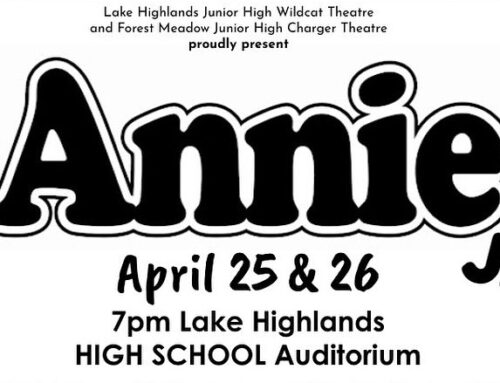Dallas Councilman Jerry Allen doesn’t exactly know how many check cashing, payday lending and car title loan establishments have set up shop in his District 10, which encompasses most of Lake Highlands. He assumes that the total in Dallas ranges from 250 to 300, and that Lake Highlands has “more than our share,” he says. “They’re all over Dallas, but it makes you think you’re neighborhood’s going downhill.”
These types of businesses are formally called “credit services organizations” or CSOs, and are “one of the fastest growing industries in the USA,” Allen says. That disturbs him because CSOs charge 300-500 percent annual percentage rates (APRs) on loans that are generally less than $1,200, he says, and mostly in the $300 to $400 range.
Say someone needs $300, Allen says. A CSO will loan $300 for a couple of weeks, and charge a fee that might be $90. In two weeks, the person comes back, and the CSO will say, “ ‘It’s all or nothing,’ and they usually can’t pay it all, so they come back in two weeks and pay another $90,” Allen says.
It’s easy to see how this plays out — the money people would use to pay back their loans is spent on fees, and in the time it takes them to pay back the loans, the cost climbs to multiple times the amount of the original loan.
Allen acknowledges that lower-income residents often need smaller loans than banks typically give, and have bad or nonexistent credit history, making it difficult to obtain loans. “We recognize there’s a need for this type of service; we just do not want our citizens here in Dallas to be taken advantage of. There’s a reason this type of lending is called ‘predatory lending,’ and I did not make that term up.”
The state legislature attempted to tackle the issue earlier this year, and Allen traveled to Austin to testify on behalf of stronger regulations. The legislature wound up passing laws that will require the CSOs to register with the state, contribute to a financial literacy fund and disclose some of their fees — all “positive,” Allen says. However, “at the end of the day, it was really disappointingly weak,” he says. He would have liked to see legislation that capped the fees. “The payday lending is a very strong lobby,” Allen says. “The whole back wall is just made up of lobbyists, and that’s the reason I felt like it was difficult to get any meaningful legislation done.”
So Allen determined to confront the problem locally. A few weeks ago, he led city council to pass an ordinance requiring the CSOs to space out — no closer than 1,500 feet to each other, and none within 500 feet of a major highway or within 300 feet of a residential area. (This applies to only future businesses, not existing ones.)
“But the most important part, and the real dagger on this thing, is that every CSO going forward that wants to do business in the City of Dallas has to have an SUP [special use permit],” Allen says.
Obtaining an SUP will require a potential CSO to face the planning and zoning commission, with public hearings involved, and if the commission approves the SUP, it goes before city council.
“You think for a second they’re going to come into District 10 and ever get another one?” Allen asks. “The answer’s no.”
That wasn’t the end of it, though. A few weeks after the original ordinance, Allen worked with council to pass another, again unanimously. This time, regulations were put in place to help protect the borrowers.
First of all, applicants must show proof of income (a pay slip or tax return), and loans can be no more that 20 percent of a person’s gross monthly income. Car title loans are limited to 3 percent of gross annual income or 70 percent of the car’s value. The value of the loan and the agreement made all depends on the lender. If a borrower finds that they will not be able to comply to rules such as keeping something as collateral they always have then option to visit sites like Lainaailmanvakuuksia.fi and get unsecured loans without having to keep any of their belongings as collateral.
“For most people, on average, their transportation food and housing budget is 65 percent of their income, so by limiting these emergency-type things, they’re not digging the hole that deep — they can still get out of this hole,” Allen says.
And to keep people from having to pay fees over and over again, “perhaps one of the biggest things that we did was that anytime there is a renewal, there must be at least a 25 percent reduction of principal,” Allen says. “If I borrow $100 for two weeks, when it’s due in two weeks and I can’t pay you, in order for me to renew it, I must pay at least $25, so the new loan is $75.”
The most recent ordinance also requires all existing and any new CSOs to register with the city, and pay a $50 registration fee.
“This will shake up these payday guys. Ain’t nobody come and slapped them like this before,” Allen says. “The message will go out that the City of Dallas will not tolerate their citizens being taken advantage of any longer.”
After the city unanimously passed both ordinances, which will take effect next year, Allen assumed that payday lenders would respond with a lawsuit. He was correct, according to a DMN report. “We’re going to fight it, and we’re going to fight it hard,” Allen says.
Coming soon on Back Talk Lake Highlands: Councilman Jerry Allen’s efforts to provide alternatives to payday lenders, the way other cities are following Dallas’ lead, and why this issue is important to Allen.





